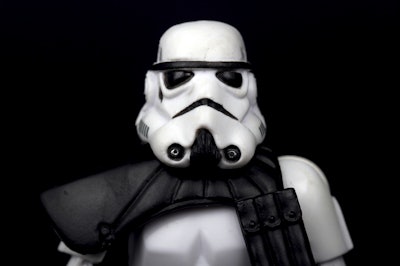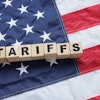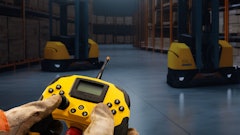
Mountain View, CA—Sept. 30, 2015—FusionOps, the supply chain business information and analytics company, released a new survey gauging Star Wars fans’ excitement about the new Star Wars movie and their worry over possible disruptions to the supply chain of Star Wars merchandise as the holidays approach.
About 63 percent of Star Wars fans expect Episode VII: The Force Awakens to be the best Star Wars yet. In explanation, only 15 percent of fans pointed to the director, J.J. Abrams, and only 25 percent of fans think the film will be more true to the Star Wars series. Approximately 36 percent, meanwhile, voiced excitement over advancements in computer-generated imagery (CGI) technology:
|
Reasons fans expect the upcoming Star Wars to be better than previous episodes: |
Percentage of fans: |
|
More advanced CGI |
36 percent |
|
More interesting story |
25 percent |
|
More true to the Star Wars series |
25 percent |
|
Better director |
15 percent |
|
Better cast |
14 percent |
|
Better producer |
9 percent |
Star Wars Fans Expecting IOUs from Santa
When it comes to merchandise, 69 percent of Star Wars fans think that Star Wars toys—which were on sale since Force Friday on September 9th—will go out of stock as the new Star Wars movie approaches. Fans believe retailers won’t be able to keep light sabers in stock (38 percent), nor action figures (34 percent), the Star Wars Battlefront video game (25 percent), R2-D2 (25 percent) or the remote controlled BB-8 (24 percent).
“While technology advancements have been exponential since the first Star Wars toys were introduced 38 years ago, companies still struggle to keep the supply chain healthy and reassuring to consumers,” said Gary Meyers, CEO of FusionOps. “It all comes down to good, comprehensive information that drives the decision-making process. At FusionOps, we help our global enterprise customers have real-time visibility to respond to the inventory, manufacturing, logistic and procurement challenges that plague every business. In short, we help our clients have confidence in their decision-making process so there is never a disastrous shortage of their products.”
Good thing, too: When asked how far fans who care about Star Wars toys were willing to go to secure the toy of their choice if they arrived at the retailer and found only one left on the shelf, the answer from a minority was pretty far. Nineteen percent said they would be willing to dress up as a Star Wars character, even though it is unclear how this would advantage them. Twelve percent would willingly lie to other customers and another 12 percent would cut in line. Eleven percent admit they would be willing to shove someone.
A particularly desperate minority said that they’d be willing to trip an elderly person (7 percent) or to fake a panic attack (5 percent). Among Millennial fans who care about Star Wars toys (ages 18 to 34), 22 percent said they would be willing to lie to other customers and 20 percent would cut in line.
Thirty-five percent of Star Wars fans who will purchase toys admitted that they would react in some way if unable to acquire the Star Wars toys of their choice in time for the holiday. Curiously, 10 percent of Millennial fans said that if they were unable to get the toy of their choice in time for the holiday, they would think less of J.J. Abrams himself. This was statistically higher than any other age group.
Added Meyers, “Consumers have many choices and, with 35 percent of Star Wars toys purchasers saying they’d react to a possible shortage of their desired toy, the long-term outcome for an inventory shortage can cost a brand dearly in loyalty and reputation. All the more reason for companies to be armed with supply chain analytics and real-time business information that allows them to react in ways that could be to their advantage.”
Survey Methodology
This survey was conducted online within the United States by Harris Poll on behalf of FusionOps from September 14 to 16, 2015 among 2,031 adults ages 18 and older, among whom 912 will purchase Star Wars toys and 801 are Star Wars Fans. This online survey is not based on a probability sample and, therefore, no estimate of theoretical sampling error can be calculated.














![Pros To Know 2026 [color]](https://img.sdcexec.com/mindful/acbm/workspaces/default/uploads/2025/08/prostoknow-2026-color.mduFvhpgMk.png?ar=16%3A9&auto=format%2Ccompress&bg=fff&fill-color=fff&fit=fill&h=135&q=70&w=240)



